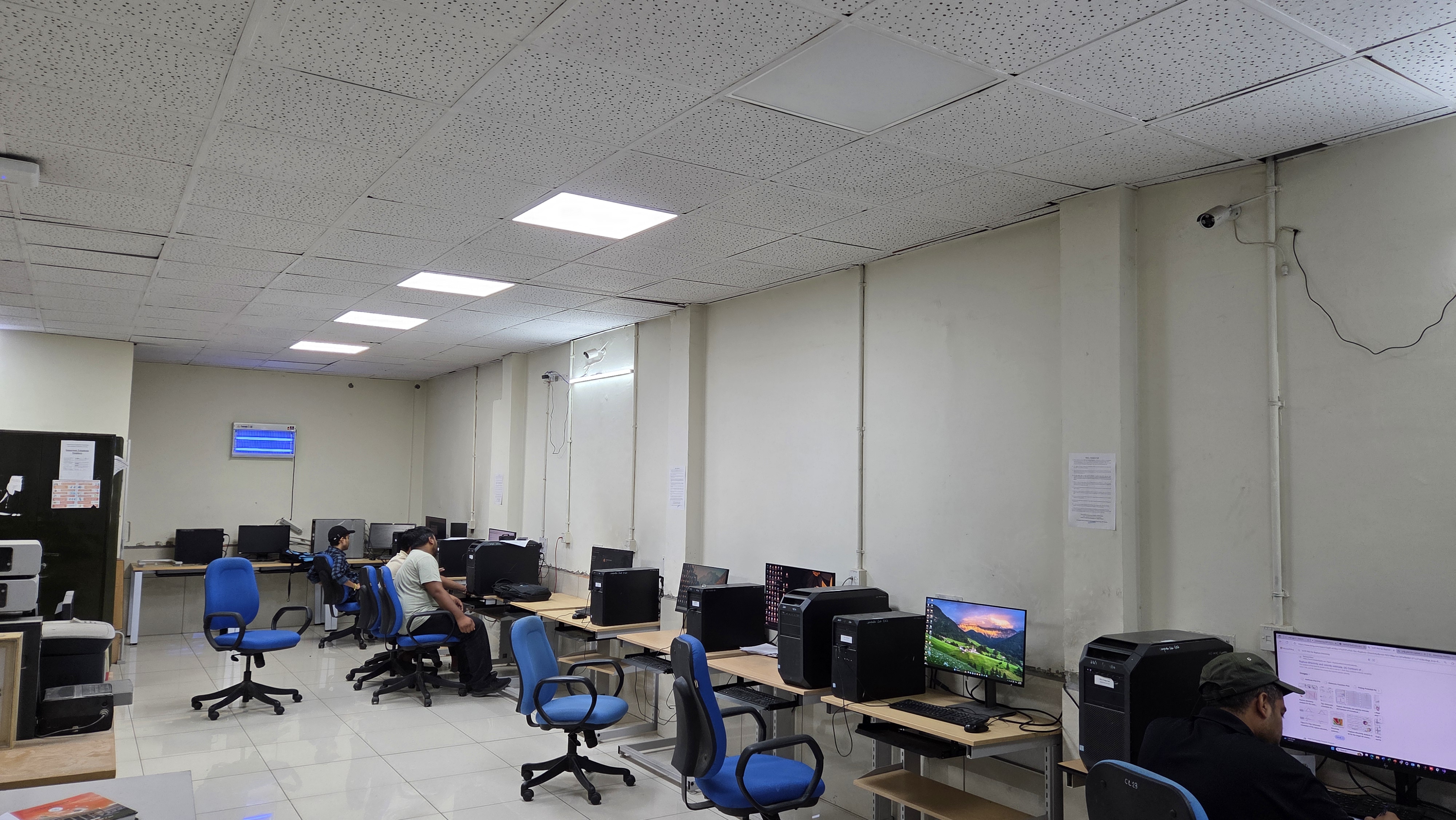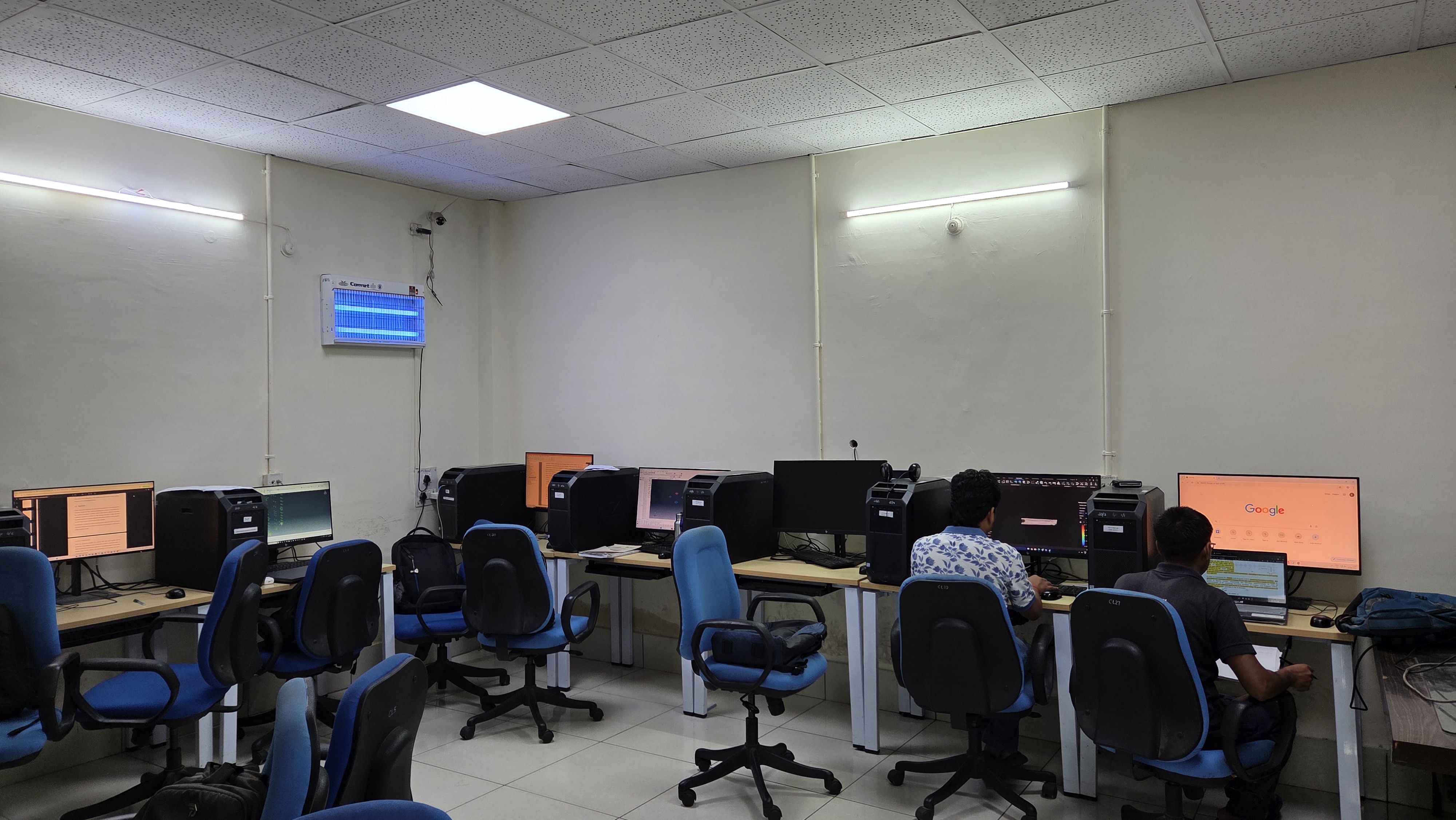Department Computer Lab – Earthquake Engineering
The Computer Laboratory of the Department of Earthquake Engineering is a state-of-the-art facility designed to support advanced computational research and academic activities. Equipped with over 35 high-end workstations, the lab provides students and research scholars with powerful computing resources necessary for simulating complex structural models, analyzing seismic data, and conducting performance-based earthquake engineering assessments.
To ensure a secure and comfortable working environment, the lab is fully equipped with 24/7 CCTV surveillance and modern air conditioning systems. These features create a safe and conducive atmosphere for extended academic and research work.
The lab supports a wide range of specialized software essential for earthquake engineering applications. These include structural analysis and design tools, seismic hazard modeling platforms, finite element analysis software, and other computational tools tailored for both academic coursework and cutting-edge research. The availability of such software enables users to perform high-level simulations, data analysis, and visualization with precision and efficiency.
The computer lab serves as a critical hub for both undergraduate and postgraduate students, as well as research scholars engaged in thesis work, sponsored projects, and collaborative research activities. It plays a vital role in facilitating academic excellence and innovation within the department by offering a technologically advanced environment that supports practical learning and real-world problem solving.
Regular maintenance and updates are conducted to ensure that both hardware and software components remain up to date with current industry and research standards. With its modern infrastructure and comprehensive computational capabilities, the lab significantly contributes to the department's mission of advancing knowledge and practice in the field of earthquake engineering.
Visitors and new students are encouraged to explore the lab and take advantage of its extensive resources for learning, experimentation, and research development.

